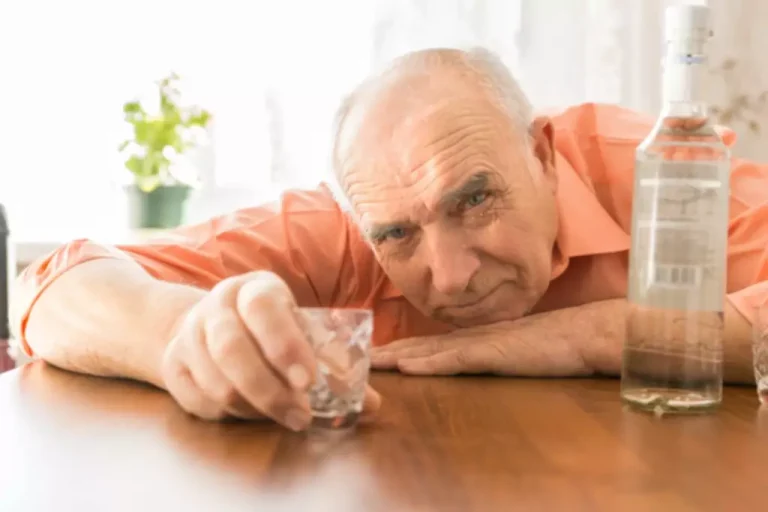
This article will review alcohol shakes, their causes, treatment, the other signs of alcohol withdrawal, and when a person should contact a doctor. Alcohol shakes are a common symptom of alcohol withdrawal that may occur when a heavy or long-term drinker stops drinking. The frequency and intensity of your tremors can depend on the severity of your alcohol drinking. After a heavy drinking session, your brain can get used to lower levels of stimulation caused by alcohol’s depressant effects. When you wake up, your brain becomes overwhelmed with activity, triggering tremors and shaking during a hangover.
Adopting a Healthy Lifestyle
Easy access to alcohol and a culture that generally accepts alcohol use can lead many people into unhealthy drinking habits. Reach out to our intake team alcoholism now to learn about how our treatment and support programs can support your recovery journey. Supportive care, including proper hydration and balanced nutrition, is also vital during detox. After detox, therapies like counseling and group support help individuals build the emotional and psychological tools needed for long-term recovery. Effective treatment focuses on both managing the physical symptoms of withdrawal and addressing the underlying addiction. Alcohol shakes are not just a physical reaction; they often serve as a wake-up call, signaling the need for professional help to manage withdrawal safely and effectively.

Treatment for Tremors
- In simple terms, these are fits of involuntary shaking that occur in a person’s body, either centralized to one area or throughout the whole body.
- Although alcohol will clear the body within a few days, cravings, shakes, and other withdrawal symptoms may linger longer.
- Several factors impact the duration, including how severe the dependency on alcohol is for the particular person having the shakes.
- Nicki has earned a Master of Science degree in Psychology with an emphasis in Behavioral Health from the University of Phoenix and a Master of Science in Professional Counseling from Grand Canyon University.
However, severe tremors could indicate worsening withdrawal symptoms and are a reason to consult with a medical provider. The Recovery Village Atlanta offers comprehensive addiction treatment for drug and alcohol addictions and co-occurring mental health conditions. Outpatient treatment at Sabino Recovery enable individuals to receive the necessary care and support to overcome alcohol withdrawal symptoms. We understand the challenges you or a loved one might face and are committed to guiding you through the recovery process with compassion, expertise, and professionalism. The role of age and frequency of alcohol use can influence the body’s response to alcohol as well. Over time, regular alcohol consumption can lead to alcohol abuse or alcohol use disorder.
Symptoms of Alcoholism

These shakes can range from mild to severe and are often most noticeable in the hands. When someone who has been drinking heavily stops consuming alcohol, their body, which has adjusted to the presence of alcohol, suddenly finds itself out of balance, leading to these tremors. If you’re experiencing alcohol shakes and wondering how to get rid of the shakes from alcohol, it’s important to understand their cause. Alcohol shakes, medically known as alcohol tremors, are a symptom of Alcohol Withdrawal Syndrome (AWS). When someone drinks heavily over an extended period, their body becomes dependent on alcohol to function.
Step Recovery Focus

Some people mistakenly believe that detoxification is all they need to complete in order to live a life in sobriety. For many, addiction begins in the first place by using alcohol as a means to self-medicate depression, trauma, anxiety, or some other live difficulty. Unless the underlying issues that fueled the alcohol abuse in the first place are processed and healed, no one, no matter how much they desire sobriety, will succeed in long-term recovery.

Typical withdrawal side effects include sweating, anxiety, insomnia, headache, nausea, vomiting, and tremors. Side effects like hallucinations, seizures, and delirium tremens (DTs) are also possible. Dealing with alcohol shakes can be a challenging and uncomfortable experience, but there are practical strategies that can help manage and alleviate these symptoms.
- At The Recovery Village Kansas City in Missouri, we understand the difficulties you face in confronting addiction and are here to support you every step of the way.
- When alcohol use is abruptly reduced or stopped, this delicate balance is disrupted and brain activity is no longer suppressed by alcohol, leading to increased glutamate activity and decreased GABA activity.
- During detoxification, the body works to metabolize and eliminate the toxins accumulated from prolonged substance abuse.
- Deficiencies in B-complex, C, calcium, potassium, magnesium and other nutrients are common with alcohol use disorder.
Supportive Care
- These include medical detox, residential rehab, partial hospitalization, intensive outpatient rehab and aftercare services.
- Alcohol shakes and tremors are involuntary muscle movements that occur due to the sudden cessation or reduction of alcohol consumption after an extended period of heavy drinking.
- Surrounding yourself with a strong support network is vital in the long-term recovery and management of alcohol tremors.
- It is important to consider your drinking habits and recognize when you need help to stop drinking.
- A caring professional is waiting to be your guide in treating and managing your mental health disorder.
- While these tremors usually occur in the hands, they can happen anywhere in the body.
- While they normally go away on their own, if your shakes are severe or don’t stop, talk to your doctor right away.
Some people with essential tremor don’t require treatment if their symptoms are mild. But if your essential tremor is making it difficult to work or perform daily activities, discuss treatment options with your health care provider. These symptoms are to be expected as brain chemistry becomes regulated and normalized during the first 6-12 months in recovery, so individuals should not be discouraged if they do experience PAWS. The more your physical and mental health improves, the less likely you are to experience tremors or other residual withdrawal symptoms, and the greater quality of life you will enjoy.
Call Us At Hand In Hand Recovery For Support
On the other hand, if you have severe withdrawal that progresses to seizures or delirium tremens, hospital treatment will likely be warranted. In this case, doctors will likely give large doses of benzodiazepines via IV, so that the medication can work quickly to relieve symptoms and treat the condition. As these medications work to relieve the body of alcohol withdrawal, you can expect tremors and other symptoms to subside. Most people find that alcohol withdrawal shakes resolve within a few days of abstaining from alcohol. =https://ecosoberhouse.com/ However, it’s important to note that the cessation of shakes does not mean one has recovered from alcohol addiction. Professional assistance and ongoing support are often necessary to manage withdrawal symptoms effectively and address underlying issues.
Staying hydrated throughout detox helps flush toxins from your body, which may lessen shakes, as well as relieve other withdrawal symptoms. You can improve your cellular metabolism by adding some drinks with electrolytes to restore the imbalance caused by alcohol. After detox, continue to drink the recommended daily amount of water to energize body, how to stop alcohol shakes improve kidney function, and improve bowel function. The best chance for a successful, long-term alcohol recovery means committing to an effective alcohol treatment program. It also means committing to lifestyle changes that will keep you physically and mentally healthy, and alcohol free. There are many ways you can take control of your sobriety and live a better life.
Consultation with a medical professional can provide guidance on how to taper effectively. Excessive alcohol consumption affects the nervous system, so when a person reduces drinking or stops it altogether, the nervous system experiences dysfunction. It becomes overactive, ultimately leading to withdrawal symptoms like tremors. Government guidelines define moderate alcohol consumption as one daily alcoholic beverage for women, and up to two drinks per day for men. Excessive alcohol use, on the other hand, can become problematic and lead to an alcohol addiction, which professionals call an alcohol use disorder. Alamo Behavioral Health Addiction Treatment Center is dedicated to providing comprehensive and effective residential treatment for individuals seeking recovery from addiction.


